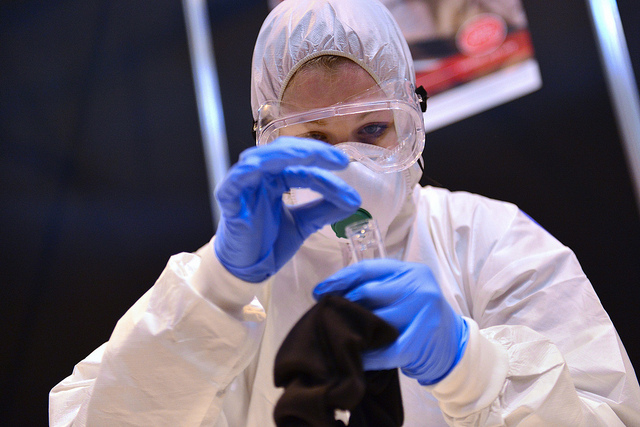Germany considers wider use of DNA evidence in criminal cases
By Nature
| 03. 27. 2017
Behind closed doors this week, the German federal justice ministry has been discussing whether to hand police a powerful new tool involving the analysis of DNA samples. The debate is a direct consequence of the rape and murder of a medical student in Freiburg last October.
Two months later the crime became a cause célèbre: the police arrested and charged a young refugee from Afghanistan — and public fears over the million or so refugees who have arrived in Germany in the past few years erupted. Among the political responses, Freiburg’s home state of Baden-Württemberg proposed new legislation to the federal parliament to extend the ways in which police can use genetic analysis.
Wider use of genetic analysis is something that German police and forensic scientists have long wanted. Yet it is unfortunate that in a country with some 1,600 murders every year, it had to be one involving a refugee that finally sparked the proposal. And it would be more unfortunate if the political pressure to push legislation through did not allow the time needed to create a law that is...
Related Articles
By Arthur Lazarus, MedPage Today | 01.23.2026
A growing body of contemporary research and reporting exposes how old ideas can find new life when repurposed within modern systems of medicine, technology, and public policy. Over the last decade, several trends have converged:
- The rise of polygenic scoring...
By Stephanie Pappas, LiveScience | 01.15.2026
Genetic variants believed to cause blindness in nearly everyone who carries them actually lead to vision loss less than 30% of the time, new research finds.
The study challenges the concept of Mendelian diseases, or diseases and disorders attributed to...
By David Cox, Wired | 01.05.2026
As he addressed an audience of virologists from China, Australia, and Singapore at October’s Pandemic Research Alliance Symposium, Wei Zhao introduced an eye-catching idea.
The gene-editing technology Crispr is best known for delivering groundbreaking new therapies for rare diseases, tweaking...
By Josie Ensor, The Times | 12.09.2025
A fertility start-up that promises to screen embryos to give would-be parents their “best baby” has come under fire for a “misuse of science”.
Nucleus Genomics describes its mission as “IVF for genetic optimisation”, offering advanced embryo testing that allows...




